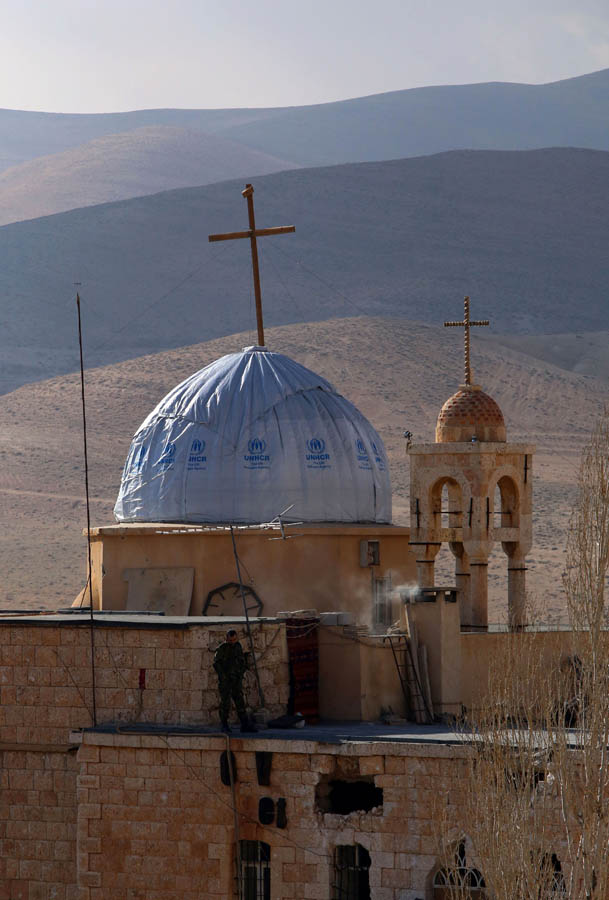Religious minorities at risk in Middle East: "Death has become something banal"
Religious minorities in the Middle East are increasingly under threat from jihadist groups such as the so-called Islamic State (IS). To call attention to the situation of Christians and other religious minorities in the region, the human rights subcommittee and the EP's Mashreq delegation held a joint hearing on 26 February. "Death has become something banal," warned guest speaker Nawras Sammour, of the Jesuit Refugee Service in Syria, saying the upsurge in radicalism was worrying Christians.

Religious minorities are increasingly at risk in the Middle East.
Commmittee chair Elena Valenciano, a Spanish member of the S&D group, was in charge of the hearing. She described freedom of religion and belief as "something humanity has been aspiring to since times immemorial".
Polish EPP member Andrzej Grzyb described the scale of the conflict in the Middle East as unimaginable: "The most important thing is to document the events on the ground to prove the scale of the crimes. Otherwise people will not be held accountable."
Austrian S&D MEP Josef Weidenholzer brought up the detention of 200 Assyrian Christians in north-eastern Syria: "Do we really want to see this region of the world empty of Christians?"
British ECR MEP Charles Tannock warned: "There is a systematic agenda by extremist, Islamist, jihadi groups to have a Middle East and North Africa free of minorities."
Daniel Hoffmann, of Middle East Concern referred to the recent beheading of 21 Egyptian Copts in Libya: "Human rights violations against Christians and other communities did not start with these violent conflicts and will not cease with their ending or with a defeat of groups like Daesh."
William Spencer, representing the Institute for International Law and Human Rights, pointed out that the situation of Iraq's minorities was already precarious before IS started.
Alison Smith of the International Criminal Justice Program/No Peace Without Justice, said that crimes in northern Iraq have included the taking of hostages, summary executions, attacks against religious buildings, enslavement, forced conversion, torture and rape. She described the crimes committed by IS as "striking in their scope, brutality, systematic nature, and most of all in the brazenness in which they are carried out".
Esther Kattenberg, of Open Doors International, said: "It is of utmost importance that the EU continually condemns violations of human rights such as religious freedom."
source: European Parliament
- 386 reads
Human Rights
Fostering a More Humane World: The 28th Eurasian Economic Summi

Conscience, Hope, and Action: Keys to Global Peace and Sustainability

Ringing FOWPAL’s Peace Bell for the World:Nobel Peace Prize Laureates’ Visions and Actions

Protecting the World’s Cultural Diversity for a Sustainable Future

Puppet Show I International Friendship Day 2020

